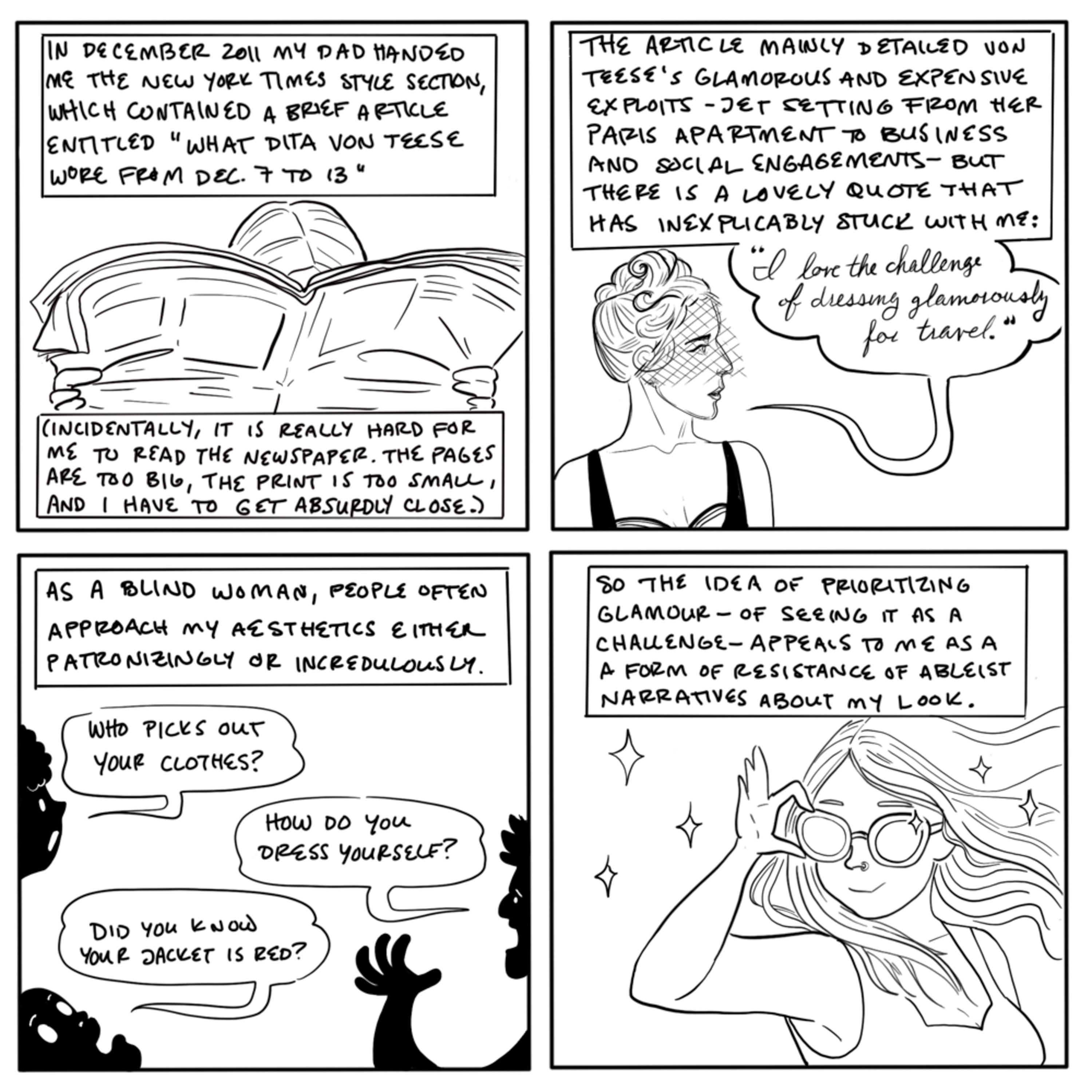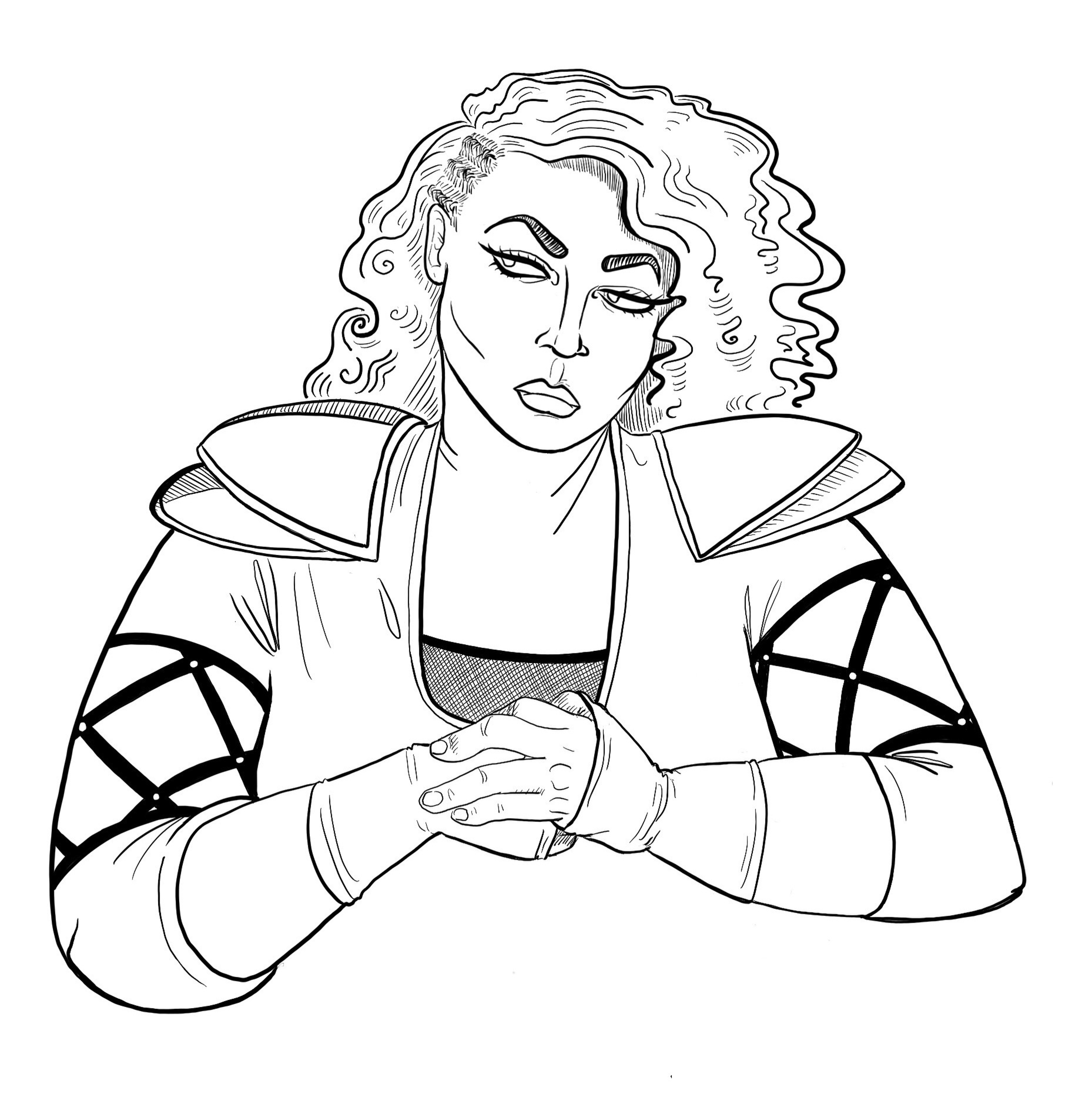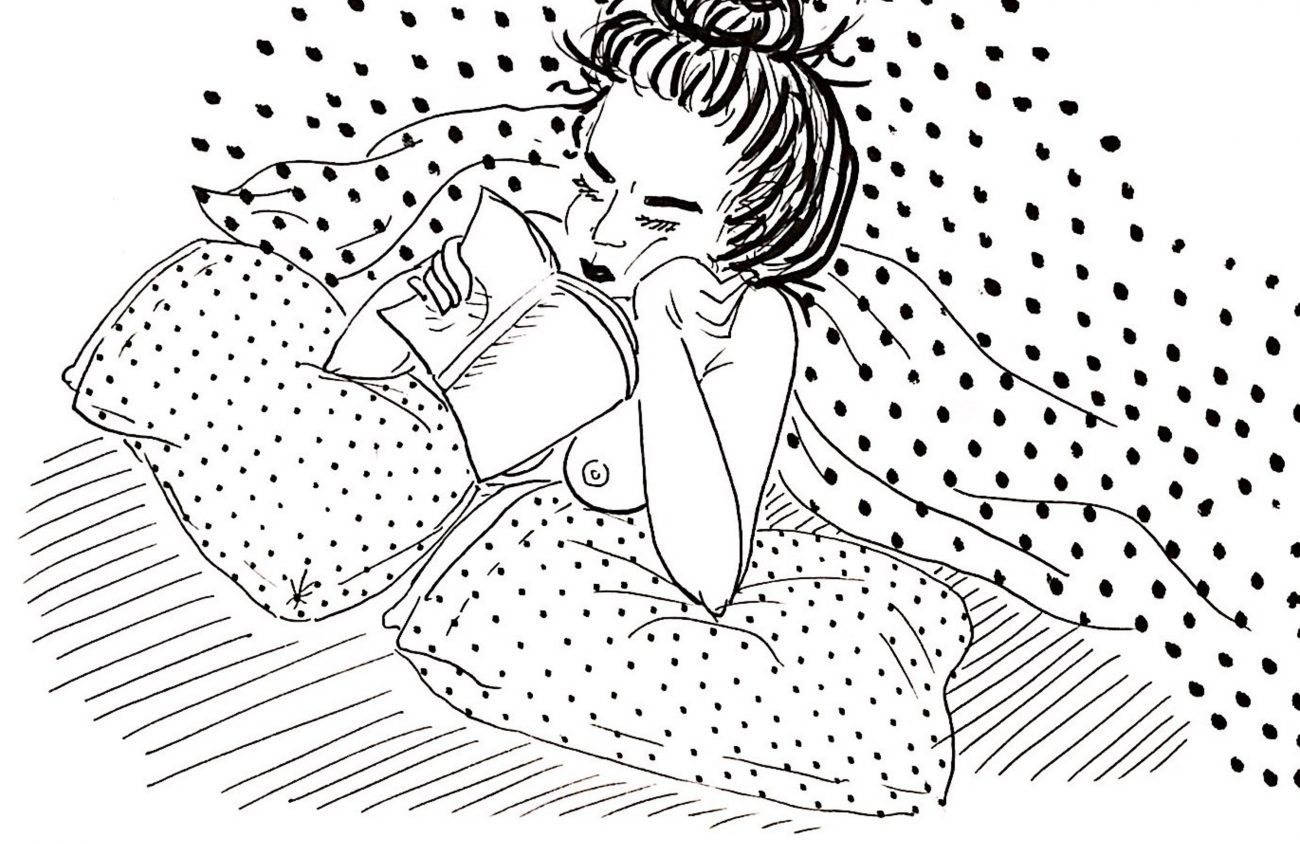When you fall down the rabbit hole of zines, comics, social commentary and stickers that make up the work of M. Sabine Rear, prepare for a long, beautiful, black-and-white journey that will alter the way you understand the world.
Illustration and comics are a natural voice for the Portland artist, who is cheeky, smart and political. Rear’s work runs from feminist educational tracts to whimsical illustrations of pro wrestlers. “My subject matter is predominantly my own experience, filtered through disability studies and the politics of public space,” Rear says.
She calls herself “the Blind Illustratrix.”
“I am a blind babe with limited distance vision and no color vision. I am easily overwhelmed in bright light, all light, and I navigate the outdoors with sunglasses and a cane,” she says.
“As a blind person making visual art, I am very aware of the perception that this is somehow oxymoronic,” Rear says. “I find that instead of hindering my engagement with visual culture, blindness narrows it in a way that allows me to interact with focus and precision when engaging with the specific elements of visual culture and visual art making in which I am interested.”
Enlarge

Expressive black-and-white line drawings and bold text dominate her work.
“I am aggressively disinterested in things with which I cannot engage,” Rear says. “I love comics as a medium because they have a history as a complex visual language in black and white which is legible to me without the use of color or distance vision.”
Rear drew passionately as a child, but backed away from art as she entered middle school. “The way that I draw, and how I look while I draw, was a marker of my blindness that I struggled with,” she says. “And teens are great at pointing out visible markers of struggle or anxiety to each other, so I pursued other creative outlets that did not mark me so obviously as disabled.”
Now, 26 years old and sporting a degree in women, gender and sexuality studies from Portland State University, Rear is ready to dive into any and all aesthetic interests.
Enlarge

Illustration by M. Sabine Rear
With her dark hair and petite, curvy figure, she looks like she popped out of a piece of Dutch realism and raided the closet of a Portland hipster. Rear can be seen out and about in Portland, following the gentle tap of her cane as she indulges her passions for drawing, art museums, patterns and fabulous clothing.
“When I returned to art most recently, I was glad to reengage a familiar mode of expression to work out all of the thoughts and feelings I had accumulated in academia,” Rear says. “My current work blends my initial interest in a variety of styles of comics with my excitement around disability studies in academia, community care and personal narrative.”
Rear’s first zine was inspired by attending the Pacific and Western Disability Studies Symposium at the University of Washington.
“It was my first experience being a part of a vibrant disabled community,” she says. “We shared personal, transformative, imaginative academic work, activism, porn and many lovely meals … this continues to be one of my most precious, supportive and generative communities.”
There she was introduced to other disabled zinesters, and returning home she created Bending Spoons, “a minizine about ableist microaggressions that combines simple illustrations of the types of microaggressions perpetrated against me in public with crip theory analysis of where these intrusions come from and why they are harmful.”
With the help of a photocopier and glue stick, Rear cobbled together a powerful little book that should be required reading for any sighted person.
Over time, Rear’s work has grown, but it retains the sense of freedom generally associated with glue-stick projects. A set of “I Don’t Care About Dude Culture” stickers pokes fun at the reverence in which some society members hold Taxi Driver and Jack Kerouac. The Teen Sabine paper doll is ready for class, fun with friends and roller derby.
Enlarge

Illustration by M. Sabine Rear
A particularly powerful piece is Reverse Flâneur, Rear’s reflection on a Christmas spent in Vienna with her family. She describes the piece as “somewhere between a travelogue and a disability studies/art history essay.”
Rear uses a trip to Vienna as a platform to explore disabled identity, public space and public presentation, particularly while alone in a strange place and while engaging with fine art. This work was nominated for a 2017 Ignatz Award in the category of Outstanding Self-Published Minicomic. ■
See more at her website, michaelsabine.com.
